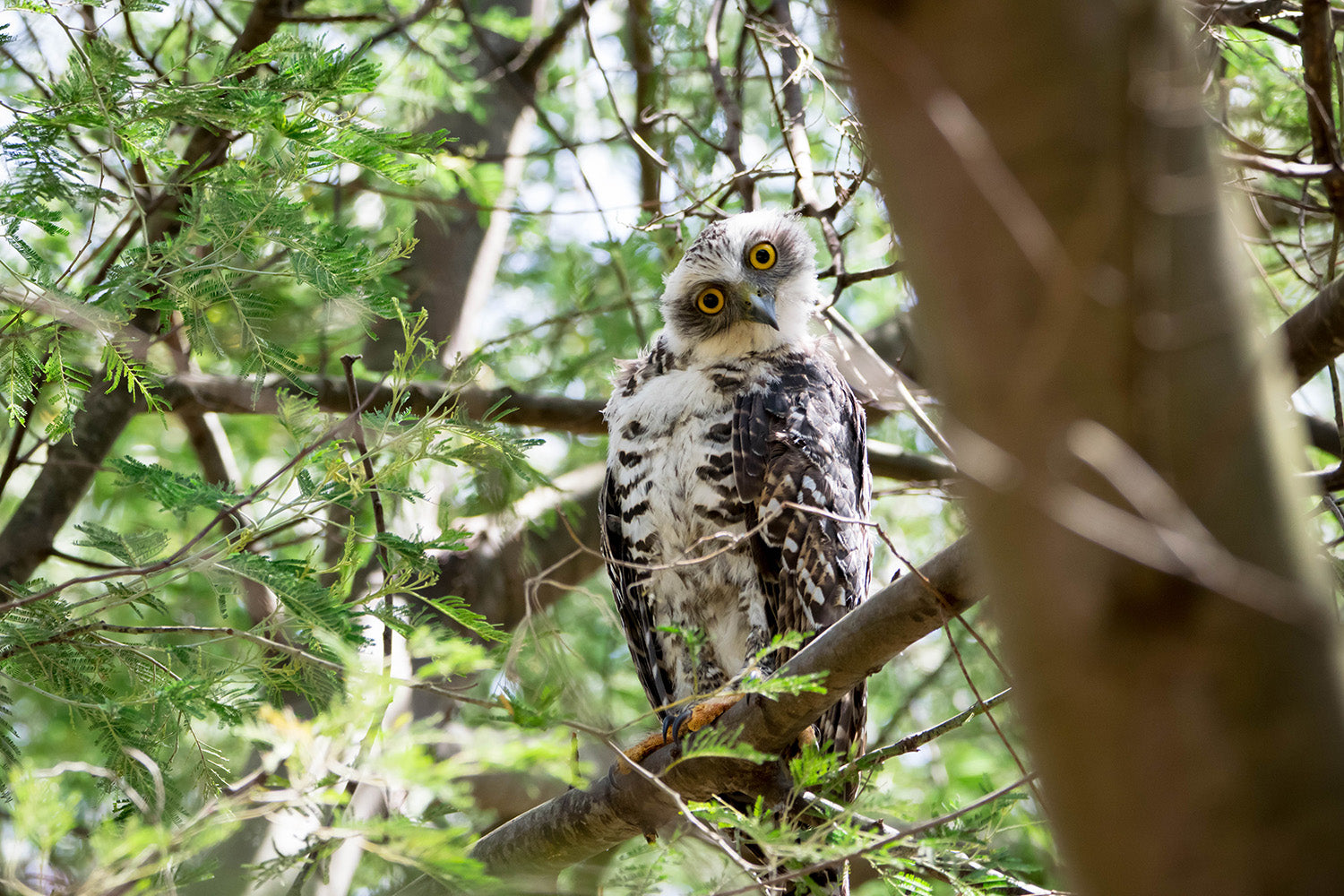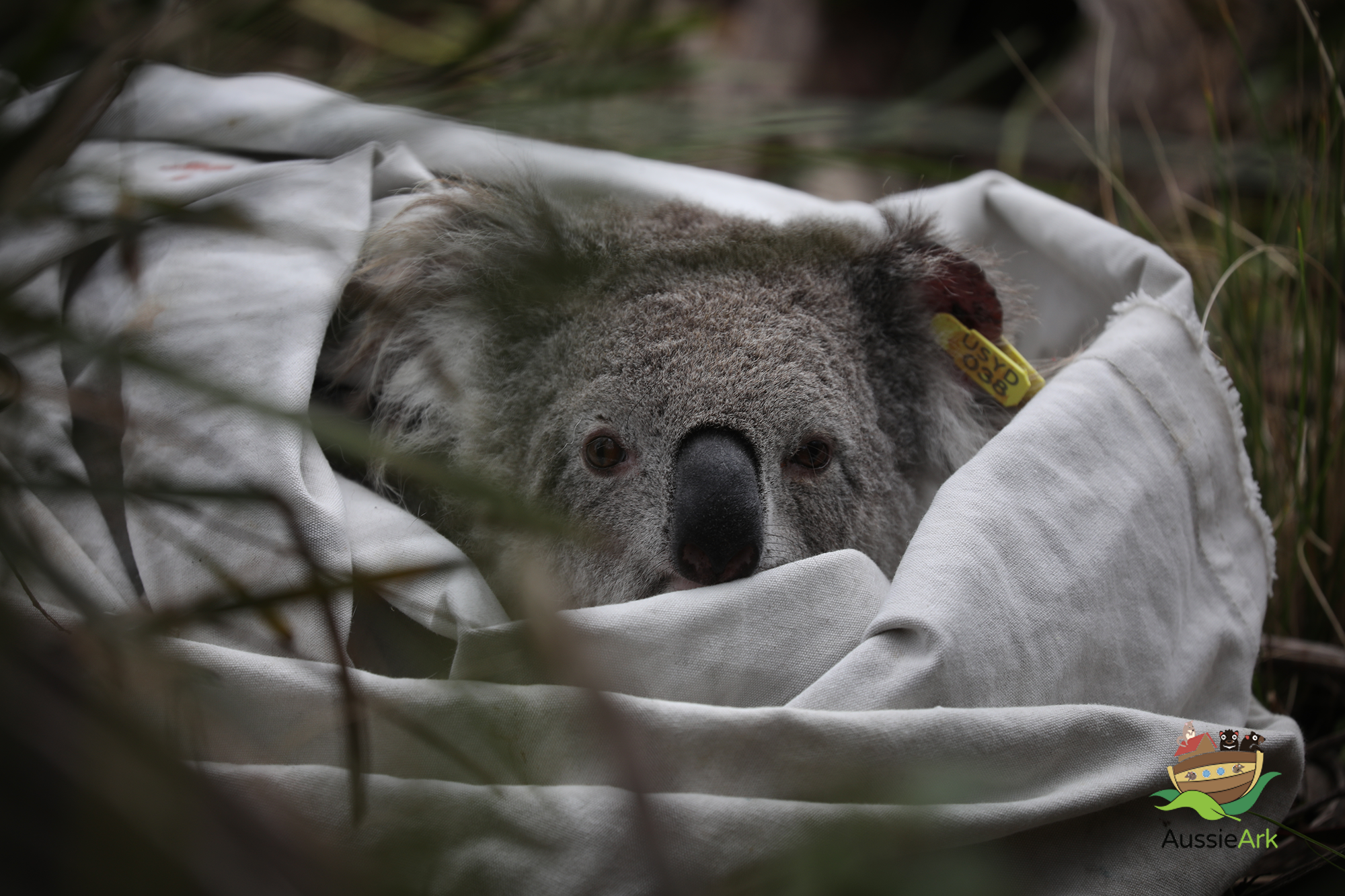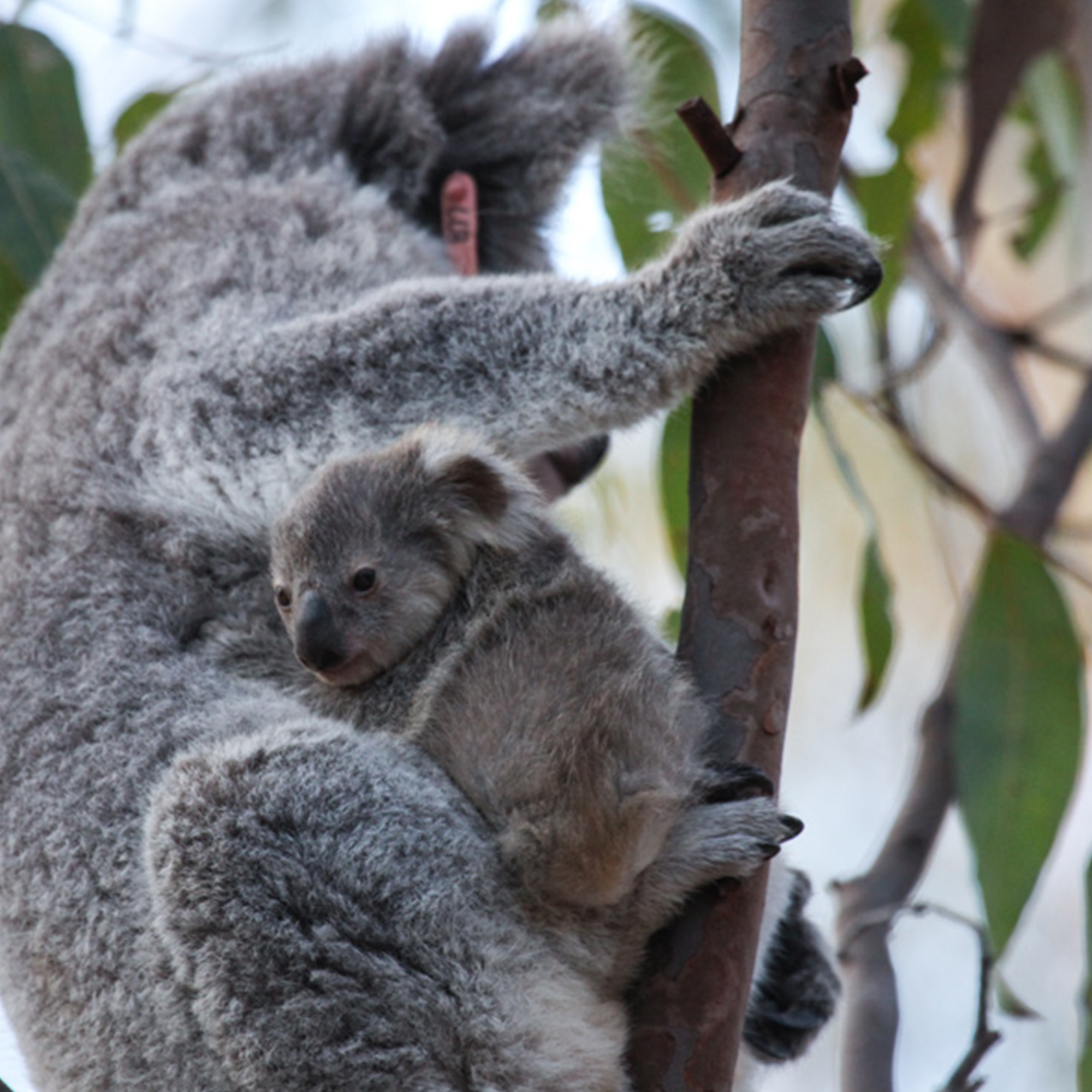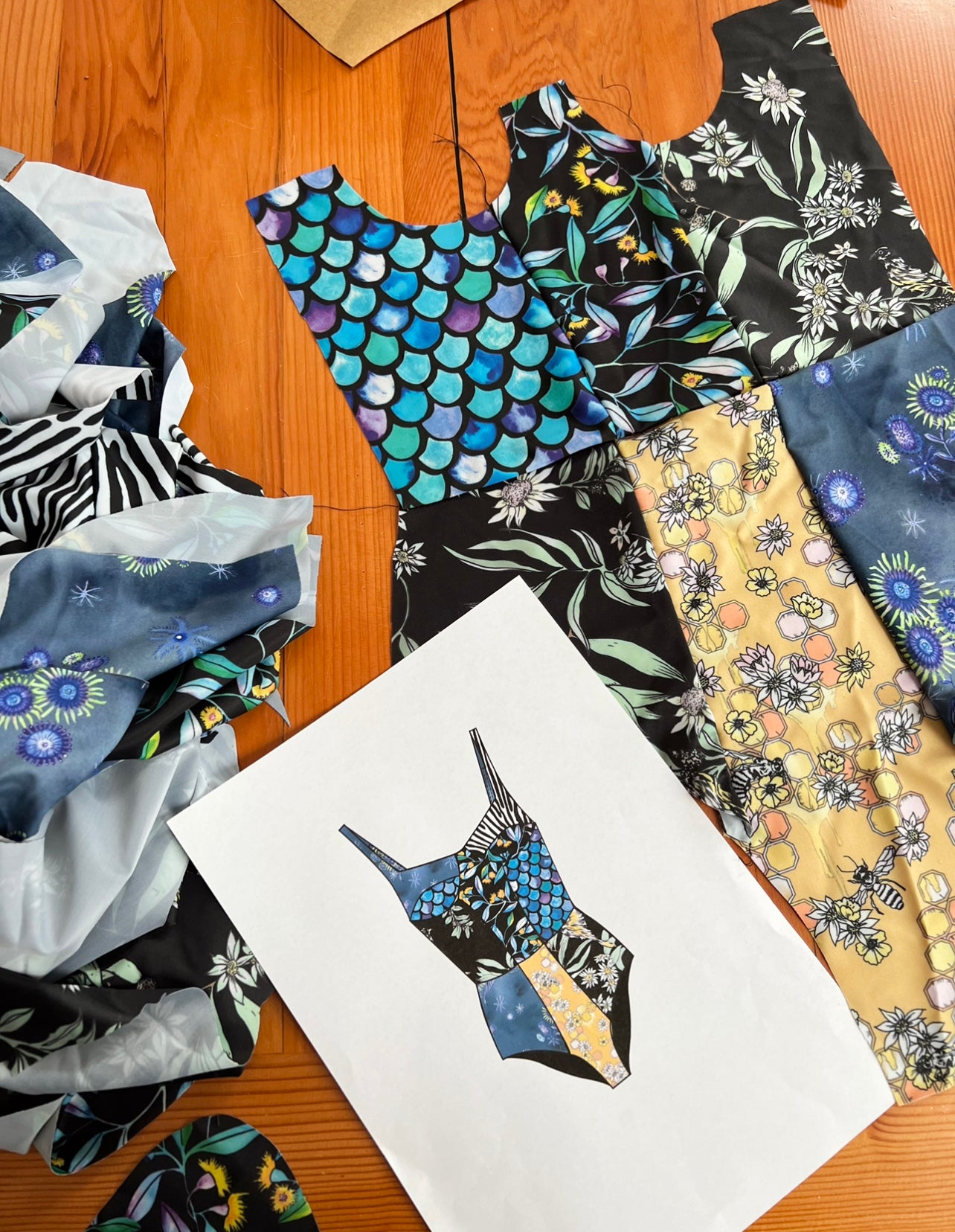Hoot's Rescue Story
By Jaide & Steve
Nightfall, Lamington QLD
Precious Hoot’s story began alone in a dry paddock two valleys north east from Nightfall. Local fellow Bruce was out on his tractor when he spotted this tiny ball of silver white fluff. Bruce thought he had found a baby Kookaburra. Now this kind fellow has an interesting phobia... A phobia of feathers. Due to his fear he was unable to pick this little bundle up let alone care for it. Bruce called for his wife Janice to collect the baby bird and search for a nest and parents. 
At the time when Hoot was found the Scenic Rim, along with most of the east coast of Australia was experiencing severe drought and wild fires. With a wild fire blazing only a few kilometres from where Hoot was found. Possibly her parents had flown away to safety unable to take their newly hatched chick with them... We can only guess.
Hoot then went into the care of Bruce and Janice daughter Laura who is part of the Nightfall team. The days Laura worked baby Hoot, a Tawney Frogmouth would come with her in a tiny little old foam esky, constantly making sweet chirping noises and sleeping in the shade of the birds nest ferns. Unfortunately Laura was unable to continue caring for baby Hoot. Laura’s 2yrs old daughter loved Hoot but did not understand Hoot was a wild animal not a toy to play with. This is when Steve and Jaide Nightfall’s hosts became Hoot’s full time committed carer’s on the 2nd of December 2019.
Steve began to research so as he could understand their new little companion. He figured that by Hoot’s weight we could determine how old Hoot is. On the 14th of December 2019 Hoot weighed 168 grams so most likely 5 weeks old. She was definitely a fledgling as she was beginning to use her wings to explore and catch food. Tawny Frogmouth’s mainly eat insects on rare occasions they eat frogs, lizards or mice. Hoot’s diet is mostly pellets made from ground up insects and what can be found and caught on the Nightfall grounds. In summer their was abundance of insects especially grasshoppers which Hoot loved. She would consume 8-12 in the evenings.
Tawny Frogmouth’s mainly eat insects on rare occasions they eat frogs, lizards or mice. Hoot’s diet is mostly pellets made from ground up insects and what can be found and caught on the Nightfall grounds. In summer their was abundance of insects especially grasshoppers which Hoot loved. She would consume 8-12 in the evenings.
Hoot has never been kept in a cage, she has a tree stump at the main building where she spends most of the daytime sunbathing and sleeping. As the sun sets at Nightfall Hoot takes off to find food and most likely a companion. From a young age Hoot has responded to Steve and Jaide's call. She would sit on shoulders as they walked about and loved being cuddled she is very loving and affectionate. Steve has made a roost just on the outside of his safari tent home Hoot comes and goes as she pleases usually returning at 5am for cuddles. Flying into the safari tent and making herself very comfortable with Steve and Jaide as they have a morning cuppa. On the 28th September 2020 Hoot did her usual fly into the safari tent 5am ... but this time was unsettled was behaving like she was trying to make a nest. By about 6am there was a beautiful little egg. Hoot is now in season unsure of how much longer she will be with Nightfall Camp at the edge of wold heritage Lamington National Park. Her desire to find a mate will be strong and of course the Nightfall Team hopes that she does.
On the 28th September 2020 Hoot did her usual fly into the safari tent 5am ... but this time was unsettled was behaving like she was trying to make a nest. By about 6am there was a beautiful little egg. Hoot is now in season unsure of how much longer she will be with Nightfall Camp at the edge of wold heritage Lamington National Park. Her desire to find a mate will be strong and of course the Nightfall Team hopes that she does. 
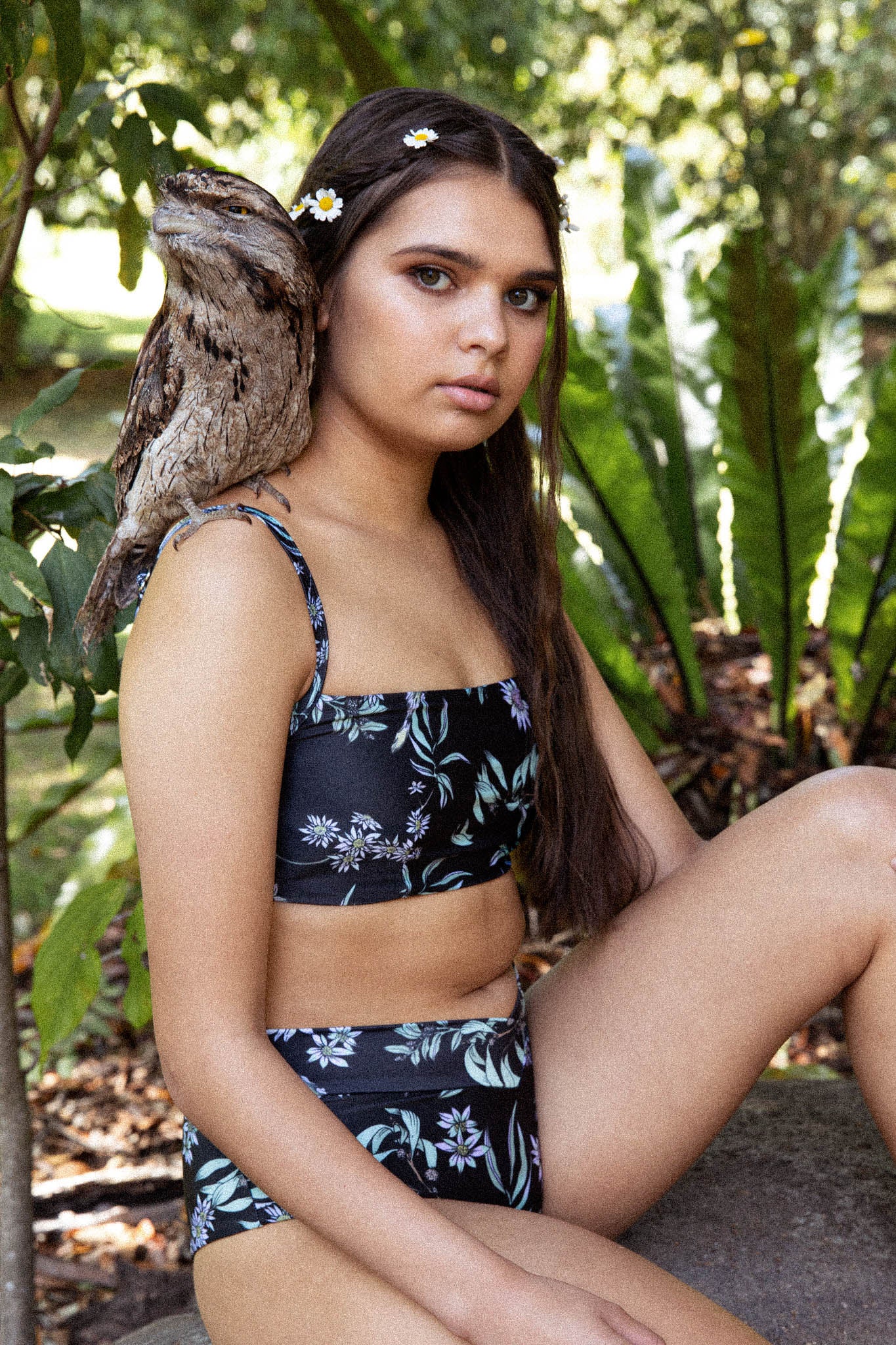
Australia’s natural world is unlike anywhere else. SHAPES IN THE SAND is a reflection of this, bursting with vibrant designs and meaningful collaborations. Each piece celebrates the wild beauty of Australia, with conservation woven into every step.
SHAPES IN THE SAND was founded by Alexandra Dash, driven by her love for nature and a desire to bring Australian inspired designs to life, with a playful take on Australia's vibrant and unique flowers and landscapes. The brand is designed with purpose to draw attention to local environmental issues and support meaningful projects. Over time, SHAPES IN THE SAND has evolved into a vibrant celebration of all things Australian, blending playful designs with a strong commitment to protecting the planet.
Our purpose is to o create exceptional, Australian-made swimwear and earthwear with intention. We’re here to empower people to choose fashion that respects both themselves and the planet. Through our community partnerships, we aim to protect native wildlife and habitats, bringing conservation to the heart of everything we do.
Eco-Conscious Prints: Our Commitment to Sustainable, Vibrant Australian Swimwear
At SHAPES IN THE SAND, recycled fabrics form a vibrant canvas for our unique Australian textile prints, each piece crafted with intricate details and a lively colour palette that reflects the beauty of nature.
From the beginning, we have focused on reducing waste, supporting local Australian production, and contributing to conservation within our community. Our fibres come from repurposed materials, including plastic waste, ghost fishing nets, and other discarded items. Crafted in Italy, these fabrics meet OEKO-TEX® recycled standards, ensuring sustainability throughout our supply chain. Locally printed in Sydney through a water-free, chemical-free process, our prints are designed to endure, reflecting our commitment to minimising environmental impact.
Our journey continues as we explore new ways to reduce and eliminate synthetics from our collections. This year, we are launching our Hemp Earthwear essentials, alongside utilising archived regenerated fabrics from our suppliers, a more conscious choice than relying on newly produced synthetics.
You can read more about these updates in journal here. Celebrate style with purpose, knowing that each piece is crafted with respect for the environment.
Environment
At SHAPES IN THE SAND, our swimwear is crafted locally in Sydney, Australia, with a focus on minimising waste throughout every part of our business. We carefully consider the environmental impact at each step—from responsible sourcing to the distribution of our limited-edition collections. Our dedication to supporting local conservation efforts is reflected in the meaningful partnerships we've built with not-for-profit organisations like WIRES Wildlife Rescue, BirdLife Australia, Aussie Ark, and OceanWatch. Through these collaborations, we actively contribute to protecting vulnerable native species and their habitats.
Local production
Every collection is thoughtfully crafted through trusted partnerships with local makers. Our swimwear makers, Raymond and Ivy, are skilled artisans behind a family-run business based in Sydney. They use minimal waste cutting techniques, ensuring fabric remnants are kept to a minimum. Any excess fabric is repurposed and returned to our studio for future use.
Sublitech and Publisher Textiles bring our signature print stories to life, collaborating with us to ensure each design is crafted with care and precision, reflecting our commitment to sustainability and craftsmanship.
Each Shapes in the Sand collection is produced in limited quantities to prevent overproduction, ensuring that every piece remains unique. We believe in choosing carefully designed garments that are made to last, creating a positive impact on both the fashion industry and the environment. Our customers receive pieces that are intentional, durable, and created with purpose.
Fabric and Printing Partners
Our fabric and printing partners are integral to our small business, contributing their expertise and dedication to help bring our collections to life with quality and care. Discover who they are.
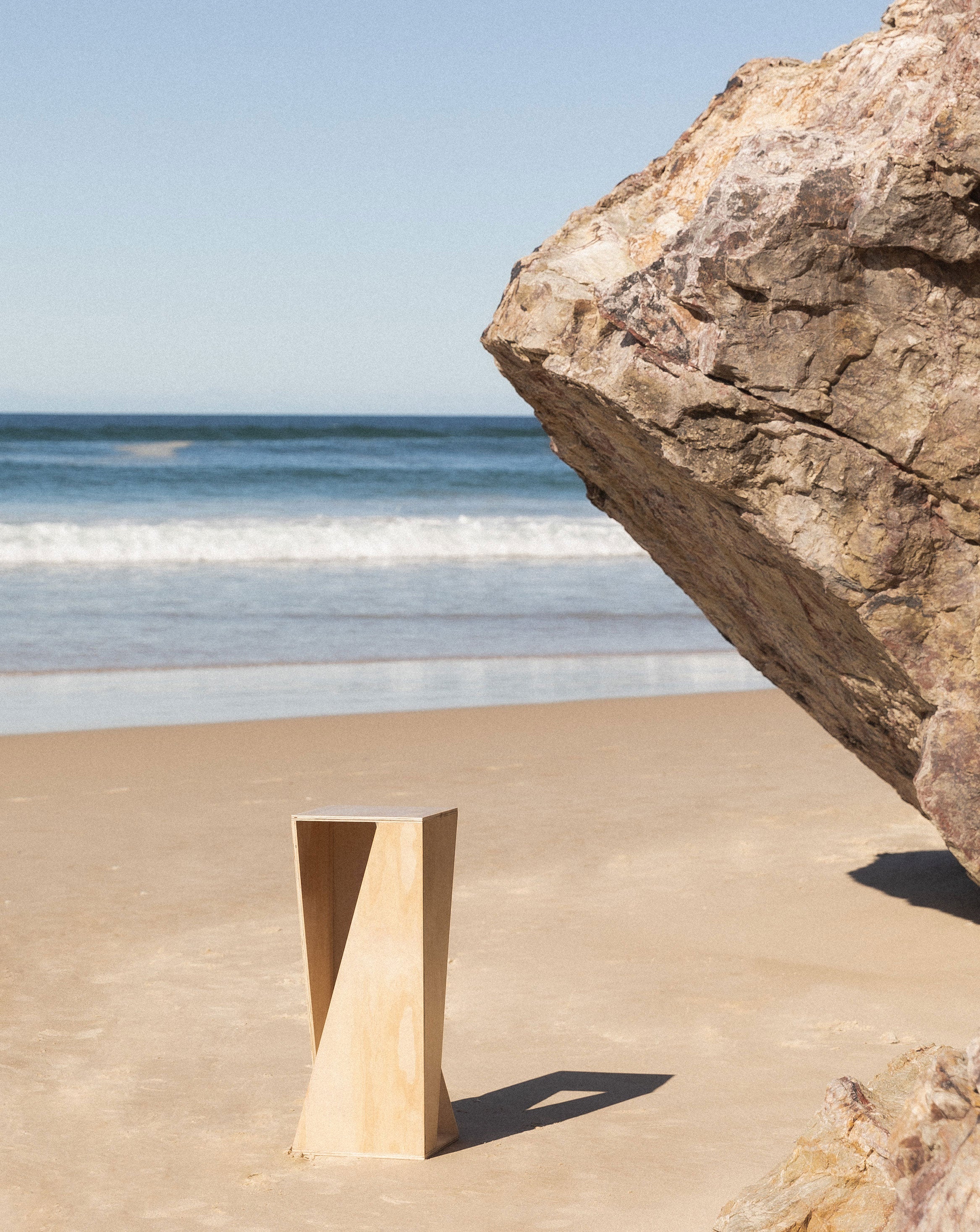
Packaging
At SHAPES IN THE SAND, we are committed to eliminating plastic from our packaging. Your swimwear is carefully packed using recycled, circular, and sustainably sourced materials, all from certified responsible sources. Our swing tags are crafted from 100% recycled card and printed with non-toxic inks. Logo and care labels are made from regenerated fibers derived from recovered materials. To replace the commonly used plastic liners in the industry, we use compostable hygiene liners for our swimwear bottoms and one-pieces. Our postage labels are fully compostable.








